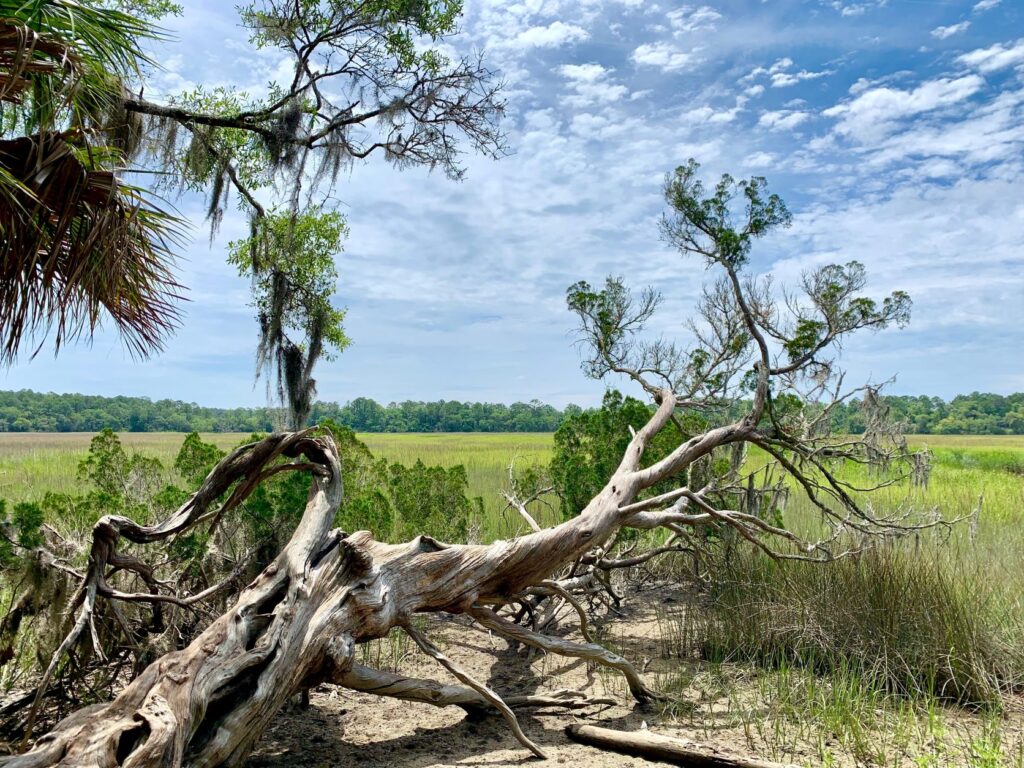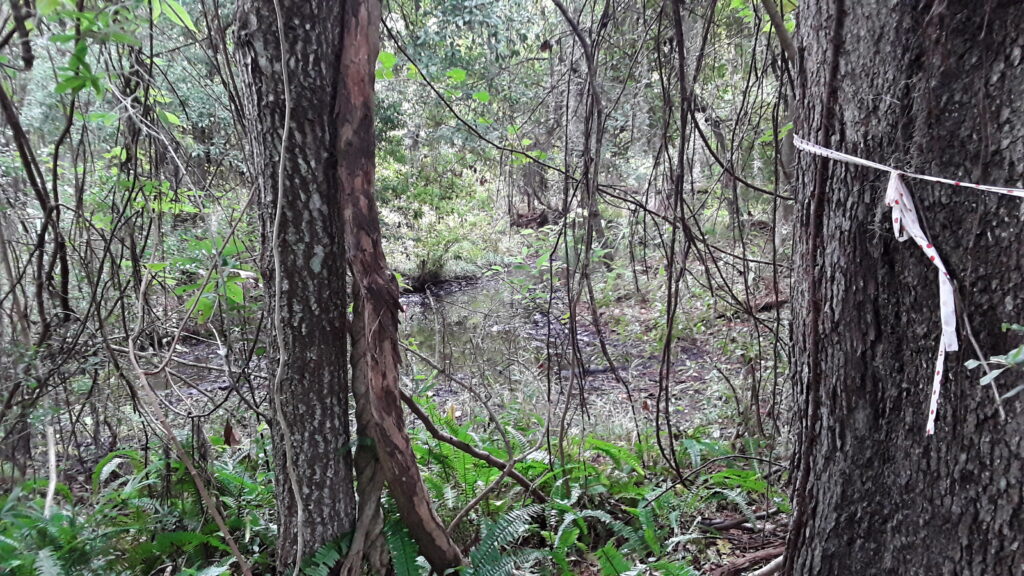[Pubilshed in the Atlanta Journal Constitution, July 5, 2024]
Coastal Georgia is undergoing rapid, unprecedented urbanization, closely tied to the state’s industrial growth and international trade. Just west of Savannah in Bryan County, these trends are being dramatically demonstrated by an enormous Hyundai EV plant, among the world’s largest such facilities, under construction on a ‘mega-site of nearly 3,000 acres near the rural town of Ellabell. A related battery-making facility is also part of the $7.6 billion deal, announced in 2022.
Although those involved in the negotiations to secure the Hyundai project claim they have met ‘due diligence’ requirements, many critical questions remain unanswered, and residents are raising well-founded objections. Similar clashes surround the proliferation of big-box warehousing along the I-16 corridor that is directly linked to the colossal volume of international trade flowing through the Port of Savannah. Georgia Ports Authority documents an increase of nearly 15% over the past year, which gives Savannah its highest ranking ever among U.S. container ports, now comprising 11.2% of the nation’s total.
The Ports Authority describes the Savannah facility as “the fastest-growing container terminal in the nation.” And, unsurprisingly, the Savannah Economic Development Authority portrays their domain as “one of the hottest industrial real-estate markets in the country.” In keeping with these ambitions, the Port of Brunswick registered a whopping increase of 44% in April’s cargo, some 80,600 units of vehicles and heavy equipment, setting a new record.
This frenzy of development activity is celebrated by many, but Georgia’s proudly-promoted yet scantly examined ranking as the nation’s “most business-friendly state” is causing unprecedented, turbulent transformation of Georgia’s coast. It has become a transformation that many residents regret and feel woefully unable to prevent making their lives worse. The region’s conversion for industrial exploitation also blatantly conflicts with long-established coastal tourism interests, based on the allure of natural and historic resources that sustain a rejuvenating escape from urban stresses that are now mounting on the coast.
According to Latrice Williams writing in Savannah Morning News, through a combination of expenditures in acquiring, reviewing and preparing the site, highway expansions and infrastructure, and workforce education, as well as tax breaks, the ‘incentive package’ supporting the Hyundai operation, paid for by public agencies, is reported to be some $1.8 billion. That means that Georgia taxpayers – including many adversely affected – are subsidizing the project without participating in pivotal decisions that result in these projects being implemented, often without adequate planning, assessment, or regulatory enforcement.
A brief 15-day regional review of the Hyundai project was conducted by the Coastal Regional Commission – in compliance with proforma procedures of the Georgia Planning Act – but comments were advisory, lacking mandatory requirements, and the review evidently occurred after the lengthy incentive negotiations had been well underway and were already deeply vested. While local-government master plans are required by the same state legislation, they may be marginalized or expediently amended to accommodate opportunistic projects that can appear appealing when not insightfully scrutinized.
Aside from often pro-development influences or entrenched unfounded assumptions, due in part to a lack of local expertise or the funds available to hire it, local officials may simply not fully understand the consequences of their decisions. This often results in ambitious projects generating: (1) more costs than benefits, (2) unfair – and unexamined – tally and distribution of those C/Bs and/or (3) deeply conflicting views on the true worth of the alleged benefits. While many development projects are promoted on the basis of job creation, some view that as a thinly-veiled cover for profit-making agendas that are far more financially rewarding for developers than workers. Moreover, many such jobs are taken by new residents, whose arrival drives still more speculative development activities that further degrade quality of life.
These experiences strongly suggest the need for fundamentally revising procedures used in making such decisions. Economic development must be judiciously evaluated, and when impacts are deemed unacceptable through informed, deliberative, and broad participatory review, projects must be accountably restricted or rejected altogether. As thousands of acres of tree-covered land are cleared and paved-over, and intensified commerce generates thousands of trips on local roads and highways, rural residents express despair about the decline in their quality of life, while also voicing concerns about stormwater contamination, river and aquifer protection, public safety, and air quality.
It is clear that decisions made by various local development authorities, the Georgia Ports Authority, and Georgia’s Department of Economic Development, whose only measure of success seems to be rapid and profitable growth, give little credence to different values held by citizens living within the expansive impact areas of these massive mega-projects.
Aggressive state and local development practices must be tempered by deliberative, mandatory review of both environmental factors and quality-of-life issues through a transparent process of participatory decision-making that justly empowers all Georgians. Our citizens must not be forced to endure the offensive consequences of dubious ventures that are unilaterally rationalized as progress, largely driven by the objectives of politically influential absentee investors.
But to help improve these decisions, the public cannot afford to be complacent. Instead of assuming a passive role that is often rationalized by cynical assertions about the impossibility of defending local interests, Georgia citizens and voters must organize and speak out at every opportunity. In particular, unless coastal Georgians insist on actively participating in these decisions, the unique character of the region will be forfeited to profit-obsessed interests, becoming just another “sacrifice zone” exploited through predatory industrialization.
...continue reading "Major Projects Must be Responsibly Controlled: Industrialization is degrading our quality of life, damaging vital ecosystems & bilking taxpayers."



